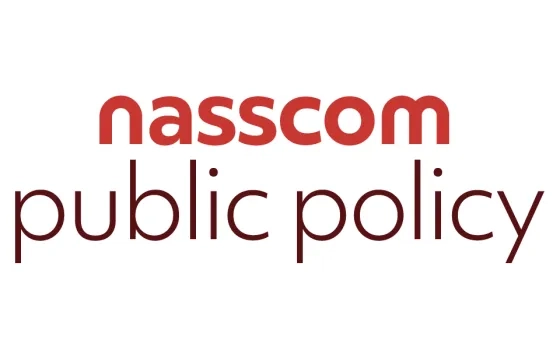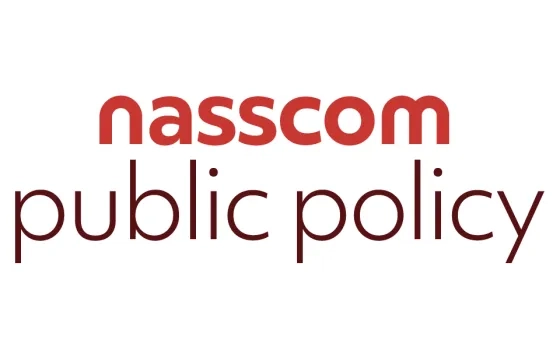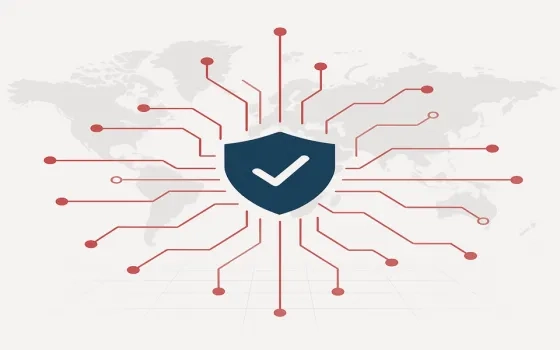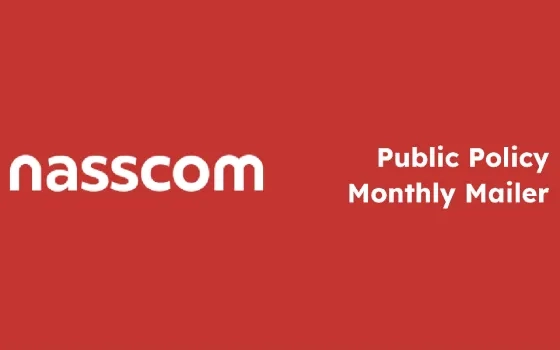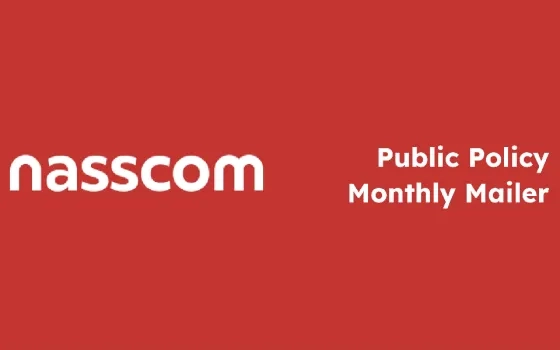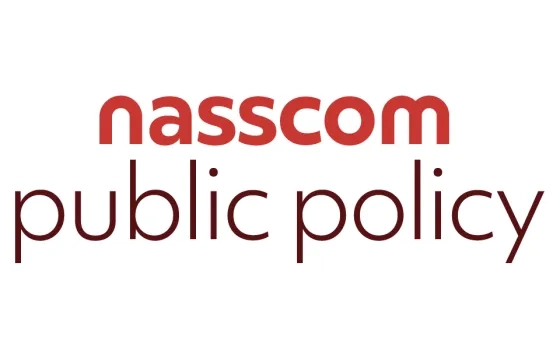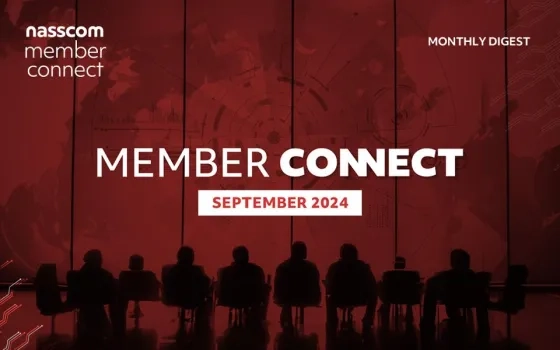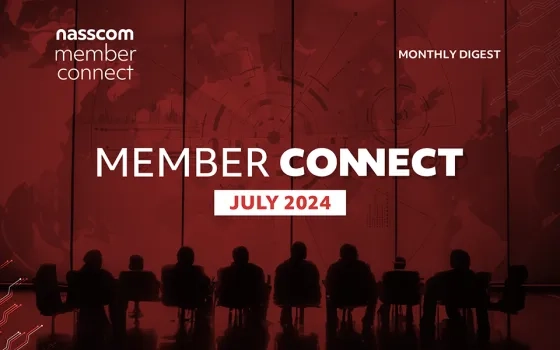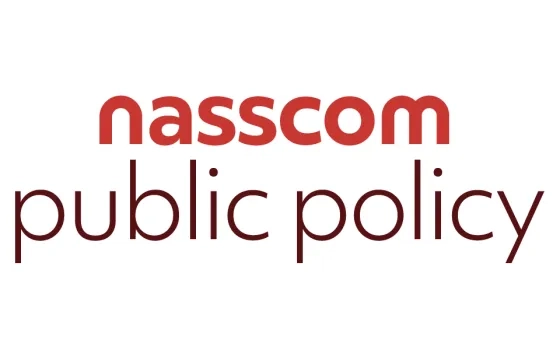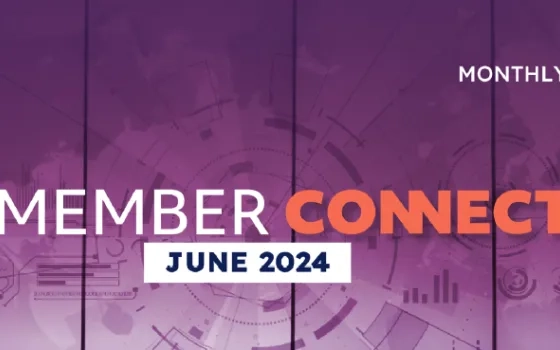|

|
|

|
| |
| |
|
GST Council resolves some of the key issues being faced by the Industry
|
| |
|
The Government has announced the following important reforms in line with NASSCOM's suggestions at the 47th meeting of the GST Council held on 28-29th June:
|
| |
|
Ecommerce:
|
| |
|
|

|
Relaxation to small sellers - The Council has decided to waive off the mandatory registration requirement under Goods and Services Tax (GST) law for sellers supplying goods through online marketplaces, subject to certain conditions. Further, the Council has also agreed to allow sellers opting for Composition Scheme to make intra-State supply through e-commerce operators, subject to certain conditions. These decisions are in line with NASSCOM's Report on creating a conducive environment for small online sellers. These are important issues for Micro, Small and Medium Enterprises (MSME) sellers selling goods online and will help them in providing a level playing field (vis-à-vis offline sellers).
|
| |
|
|
Working capital:
|
| |
|
|

|
Allow refund of unutilised credit due to inverted rated structure on input services - This decision of the GST Council will ease working capital requirements of taxpayers, which was otherwise getting accumulated without any recourse to refund or utilisation of credits. Before this decision, the refund of unutilised credit was only available on input goods. This is in line with NASSCOM's recommendation.
|
|

|
Extension of exemption of Integrated GST (IGST) on import of capital goods by Export Oriented Units (EOUs) - The Ministry of Finance (MoF) has issued a Notification to provide an extension of IGST exemption beyond 30th June 2022.
|
| |
|
|
IT Reforms:
|
| |
|
|

|
The Group of Ministers (GoM) has recommended GSTN to put in place Artificial Intelligence/ Machine Learning based mechanism. This will help the government to identify non-compliant taxpayers at an initial stage and take appropriate action to minimise the risk to exchequer.
|
|
| |
|
The relevant Circular/ Notifications from the GST Policy Wing are awaited.
|
| |
|
Read More
|
|
| |
| |
| |
|
Directorate General of Foreign Trade (DGFT): Notification of the revised Global Authorisation for Intra Company Transfers (GAICT) scheme
|
| |
|
DGFT has notified the much-awaited revision to the GAICT scheme. The GAICT scheme was first introduced in 2019, under which eligible exporters were allowed to obtain a bulk licence for intra-company re-export of imported Special Chemicals, Organisms, Materials, Equipment and Technologies (SCOMET) items, software, and technology under certain categories. NASSCOM had extensively engaged with the industry and the DGFT on this, and the revised policy incorporates most of the suggestions made by us.
|
| |
|
The revised policy has expanded the scope of transactions to cover intra-company transfers of multiple items to multiple destinations for a period of 3 years. Some other changes include expanding the scope to include India headquartered companies, imported item to be under a licence exception is no longer mandatory, inclusion of approved third-party in the transaction etc. Overall, the policy is expected to make it easier for the industry to manage their export control compliances. For more information, kindly write to garima@nasscom.in
|
| |
|
Read More
|
| |
|
|
|
|
|

|
| |
| |
|
Ministry of Commerce and Industry (MoCI): Draft law to replace the existing Special Economic Zones Act, 2005
|
| |
|
The MoCI is presently working on the draft Development (Enterprise and Services) Hubs Bill, 2022 (DESH Bill) to revamp the extant Special Economic Zones regime. The objectives of the DESH Bill are inter alia promotion of economic activity, employment generation, promotion of investments, and maintaining manufacturing and export competitiveness.
|
| |
|
Based on what we know, the DESH Bill provides for establishment of Development Hub either jointly or severally by the Central Government, State Government, or any person for manufacture of goods and/or rendering services. It envisages the constitution of an Integrated Development Hub Board to promote, oversee approvals of, and ensure the development of Development Hubs. Every Developer and entrepreneur under the DESH Bill would be entitled to certain exemptions, drawbacks and concessions under the customs and excise legislations. Other provisions of the draft DESH Bill include an obligation to remit any benefit in case of cancellation of letter to entrepreneur, a single window clearance mechanism for Development Hubs, and imposition of Equalisation Levy on removal of goods/services from a Development Hub to the Domestic Tariff Area.
|
| |
|
NASSCOM has written to the government requesting for formal public consultations on the DESH Bill, given its significance for the industry and the economy. For more information, kindly write to dagarwal@nasscom.in.
|
| |
| |
| |
|
Ministry of Electronics and Information Technology (MeitY): NASSCOM-DSCI Feedback on Draft National Data Governance Framework Policy (NDGFP)
|
| |
|
NASSCOM, along with Data Security Council of India (DSCI), made a submission to MeitY, in response to a stakeholder consultation on NDGFP. Our suggestions focus on strengthening the institutional mechanism by providing for areas for standards for ease of data access and data quality; independence of the redress mechanism within the proposed framework; and ensuring that the policy revisions are approved by Secretary, MeitY. We have also highlighted the need for strong anonymisation standards in line with current and emerging international best practices. At the stakeholder meeting organised by MeitY, we suggested that the government may consider including statutory authorities in NDGFP so that they may also be encouraged to adopt the provisions of the policy, to the extent relevant.
|
| |
|
Read More
|
| |
| |
| |
|
Securities and Exchange Board of India (SEBI): Response to Consultation Paper on Pre-Filing Offer Document in case of Initial Public Offer (IPO)
|
| |
|
As part of our submission, we have welcomed the proposal for introduction of an alternate mechanism for regulatory review of offer document by permitting a confidential pre-filing of offer document. We have also requested SEBI to clarify whether SEBI would notify the issuer company to file the final Red Herring Prospectus after taking note of the changes to draft prospectus, and if yes, then the timeline for such notification.
|
| |
|
Read More
|
| |
| |
| |
|
Telecom Regulatory Authority of India (TRAI): Submission on Consultation Paper on Media Ownership
|
| |
|
In our submission to the consultation paper, we have noted two concerns: (1) the paper extensively explores concerns of media plurality and content quality; however, the connection with TRAI's jurisdiction is unclear (2) the paper does not offer adequate evidence to establish causal linkage between market concentration and media plurality, and, thus, does not adequately make the case for new interventions in this regard. While the timeline to submit comments is now closed, counter-comments can be provided until July 12. For more information, kindly write to varun@nasscom.in.
|
| |
|
Read More
|
| |
|
|
|
|
|

|
| |
| |
|
Indian Computer Emergency Response Team (CERT-IN): Extension of deadlines for Cyber Security Directions 2022
|
| |
|
On June 28, CERT-IN issued a qualified extension on the deadline to comply with the Cyber Security Directions 2022. Specifically, (1) MSMEs have been given time till September 25 to comply with all the Directions (2) the requirements to register and maintain validated customer details will also only come into effect on September 25. We are, in collaboration with DSCI engaging with the industry on this issue, and we look forward to receiving inputs on this. For more information, kindly write to varun@nasscom.in and apurva@nasscom.in.
|
| |
|
Read More
|
| |
| |
| |
|
|
Reserve Bank of India (RBI): Call for inputs on Payment and Settlement Systems Act, 2007
|
| |
|
The RBI, in its Payment Visions Document, noted that when the Payment and Settlement Act was legislated in 2007, digital payments ecosystem in India was at a nascent stage. Considering the developments in the payments ecosystem including the domestic and cross-border aspects of it, the RBI is considering a comprehensive review of legislative aspects of Payment and Settlement Systems Act and the regulations therein. In this regard, should you have any inputs on the amendment of Payment and Settlement Systems Act, kindly write to apurva@nasscom.in by August 1.
|
| |
| |
| |
|
|
RBI: Extension on purging Card-on-File (CoF) data by three months
|
| |
|
The RBI has granted an extension to purge CoF data by three months i.e., till September 30, 2022. It has noted that while transaction processing has commenced, it is yet to gain traction and that an alternate system in respect of transactions where cardholders decide to enter the card details manually at the time of undertaking the transaction has not been implemented by the industry stakeholders, so far.
|
| |
|
We have been working closely with the industry to monitor its readiness and have made representations to the RBI highlighting industry concerns such as non-token based transactions, recurring payments etc.
|
| |
|
Read More
|
| |
| |
| |
|
|
RBI: Barring non-bank entities from loading credit lines through Prepaid Payment Instruments (PPIs)
|
| |
|
The RBI, through a notification on PPIs, has barred non-bank entities from loading credit lines into PPIs. We are engaging with the industry on this issue, and we look forward to receiving inputs on this. For more information, kindly write to apurva@nasscom.in.
|
| |
| |
| |
|
|
RBI: Inputs on draft Master Direction on Outsourcing of Information Technology (IT) services
|
| |
|
The RBI has released a draft Master Direction on Outsourcing of IT Services (draft Master Direction) for stakeholder consultation. The draft Master Direction is applicable on material outsourcing services of Regulated Entities (REs); it requires to evaluate their outsourcing needs; mandate redressal of customer grievance; requires storage of data in India as per extant requirements; and requires REs to adopt the storage, computing, and movement of data in cloud environment requirements. In case you have any comments on the draft Master directions, kindly write to apurva@nasscom.in before July 10.
|
| |
|
Read More
|
| |
| |
| |
|
|
MeitY: Stakeholder consultation and call for inputs on amendments to the intermediary guidelines
|
| |
|
MeitY has released a draft set of amendments to the Information Technology (Intermediary Guidelines) Rules 2021 for stakeholder consultation. In brief, the amendments would require all intermediaries to (1) ensure compliance with the intermediaries' policies (2) cause users to not transmit any prohibited information (3) ensure accessibility, transparency, and privacy (4) respect the constitutional rights of all citizens of India. A new grievance appellate committee is proposed to enable users to appeal intermediaries' decisions.
|
| |
|
At the stakeholder meeting organised by MeitY, we offered our initial viewpoints, noting that the proposed formulations treat a very diverse set of intermediaries and users' activities with the same brush. We highlighted the need for clarity on how procedures governing the constitution and functioning of the proposed grievance appellate committee will be introduced. For more information, kindly write to varun@nasscom.in and apurva@nasscom.in before July 4.
|
| |
|
Read More
|
|
| |
|
|
|
|
|
|
| |
| |
|
Start-ups: Policy paper on enabling capital for the start-up ecosystem
|
| |
|
NASSCOM, in partnership with TiE Delhi-NCR and Grant Thornton Bharat, is finalising a policy paper to highlight the concerns faced by start-ups, founders, and investors at various stages of a start-up's growth journey. The paper will also present the findings of the survey conducted by us in August 2021. The aim of this paper is to provide recommendations to the government on issues such as access to domestic and international capital, innovative ways of raising capital etc. For more information, kindly write to garima@nasscom.in.
|
| |
| |
| |
|
Department of Telecommunications (DoT): New Guidelines for Captive Non-Public Network (CNPN) Licenses
|
| |
|
On June 27, DoT released new guidelines on CNPN licenses recommending that (1) Telecommunications Service Providers (TSPs) with access service licenses can offer private networks to enterprises over its public networks (2) TSPs can also establish isolated CNPN for enterprises using spectrum acquired by them (3) enterprises setting up such networks can obtain spectrum on lease from TSPs or directly from DoT. The guidelines set out certain conditions to affect these recommendations. This design of a combination of approaches aligns with our past recommendations on CNPNs. For more information, kindly write to varun@nasscom.in.
|
| |
|
Read More
|
| |
|
|
|
|

|
| |
| |
|
Government of United Kingdom (UK): Release of proposals to reform General Data Protection Regulations (GDPR)
|
| |
|
The Government of UK recently released a set of proposals that will, if enacted, be deviations from the GDPR. The Government of UK will also release a Data Reform Bill that will, inter alia, aim at (1) making reuse of data for research easier (2) making compliance for SMEs easier (3) making it easier to grant adequacy decisions to entire regions instead of just individual countries. For more information, kindly write to varun@nasscom.in and apurva@nasscom.in.
|
| |
| |
| |
|
Haryana Labour Department: Notification regarding conditions for providing exemption in the night shifts by women employees
|
| |
|
The Haryana Labour Department issued a notification on June 7 specifying conditions for employing women in night shifts with respect to the security and safety of women employees. The notification includes certain obligations on establishments such as installation of CCTV cameras in transportation vehicles, ensuring that the minimum strength of women employees working in the night shift is 2/3rd of the total strength and women in the supervisory staff in the night shift are not less than 1/3rd of the strength of the supervisors. For more information, kindly write to dagarwal@nasscom.in.
|
| |
| |
| |
|
Haryana Government approves Haryana Data Centre Policy, 2022
|
| |
|
Based on news reports, the Haryana government recently approved the Haryana Data Centre Policy (Policy). The aim of the Policy is to make Haryana a preferred destination for setting up such facilities, and help the state emerge as a global data centre hub. The Policy seeks to declare data centre spaces as a separate infrastructure industry as well as energy-intensive industry. Benefits under the policy include reimbursement of stamp duty paid on sale/lease deeds and exemption from electricity duty. In this regard, NASSCOM had made a submission to the Haryana Government in July 2021 on the draft data centre policy. We are waiting for the fine prints of the approved Data Centre Policy of Haryana. For more information, kindly write to tejasvi@nasscom.in.
|
| |
|
Read More
|
| |
| |
| |
|
Parliamentary Committee Publishes Report on Promotion and Regulation of e-Commerce in India
|
| |
|
The Department related Parliamentary Standing Committee on Commerce presented its report on 'Promotion and Regulation of E-Commerce in India'. Recommendations made by the Committee include formulation of the national e-commerce policy, amendment of the competition laws in India to suit digital markets, filling gaps in consumer protection laws for e-commerce, clarifying the applicability of consumer protection rules to Open Network for Digital Commerce, bringing reforms in the GST regime applicable to e-commerce entities and taking measures for the promotion of e-commerce exports. For more information, kindly write to garima@nasscom.in and dagarwal@nasscom.in.
|
| |
|
Read More
|
| |
| |
| |
|
Ministry of Information & Broadcasting (MIB): Advisory on Advertisements of Online Betting Platforms
|
| |
|
The MIB has issued an advisory to newspapers, private satellite television channels and publishers of news and current affairs content on digital media on advertisements related to online betting websites/platforms. It notes that- a) advertisements related to gambling and betting promote an activity that is prohibited and pose financial and socio-economic risks to youth and children; b) these advertisements are misleading and are not in conformity with extant laws. For more information, kindly write to apurva@nasscom.in.
|
| |
| |
| |
|
MoF: Guidelines in relation to Tax Deduction at Source (TDS) on benefit or perquisite
|
| |
|
The MoF issued a Circular providing clarification in relation to applicability of TDS on benefit/ perquisite under S.194R of Income-tax Act, 1961 (IT Act). Some important clarifications include a) no requirement to check the taxability of benefit/ perquisite for the recipient; b) tax to be deducted even on benefit/ perquisite in cash or in kind; c) No TDS on sales discount, cash discount and rebates allowed to customers, amongst others. Based on our reading of the Circular, we believe that scope of S. 194R has been kept very wide and there may be certain areas where the industry may need guidance/ clarification. In case you want us to make a representation to MoF or conduct a webinar to discuss the provisions of the said section, kindly write to tejasvi@nasscom.in.
|
| |
|
Read More
|
| |
| |
| |
|
MoF: Guidelines in relation to TDS on transfer of virtual digital assets
|
| |
|
The MoF issued a Circular providing clarification on applicability of TDS on transfer of Virtual Digital Assets (VDA) under S.194S of IT Act. Some of the important clarifications include: a) If transaction is executed on or through an Exchange and VDA is owned by any other person, tax will be deducted only by the Exchange; b) In case of exchange of one VDA with another VDA, both the buyer and seller need to pay tax with respect to transfer of VDA and show the evidence to other; c) TDS under S. 194S shall be on the "net" consideration after excluding GST/charges levied by the deductor for rendering service, amongst others.
|
| |
|
Read More
|
| |
| |
| |
|
RBI: Payments Vision 2025
|
| |
|
The RBI has published its latest Vision Document 2025 (Document). The Document builds on the Payments Vision 2019-21 and outlines the thought process up to December 2025. It focuses on integrity, inclusion, innovation, institutionalisation and internationalisation. Of the initiatives under these five heads, the RBI intends to review the Payments and Settlement Systems Act; link credit cards and credit products to UPI; explore local processing of payment transactions; and constitute a payments advisory council amongst other suggested steps.
|
| |
|
Read More
|
| |
| |
| |
|
RBI: Report of the Regulations Review Authority 2.0
|
| |
|
The Regulations Review Authority 2.0 (RRA 2.0) has released its report with an objective to reduce compliance burden on regulated entities by streamlining the regulatory instructions and rationalising reporting requirement. Key suggestions include- a) supplementing instructions with FAQs/guidance; b) conducting periodic review of existing regulations to align them with evolving developments; c) elimination of paper-based returns; and d) updating master circulars in a time bound manner amongst other recommendations.
|
| |
|
Read More
|
| |
| |
| |
|
RBI: Processing of e-mandates for recurring transactions
|
| |
|
In 2019, the RBI had released the framework for e-mandate for recurring online transactions using cards/wallets/ Unified Payment Interface. Initially, the limit of e-mandate was INR 2000/- which was later increased to INR 5000. The RBI recently issued a notification for increasing the limit for Additional Factor Authentication (AFA) from INR 5000 to INR 15000. For more information, kindly write to apurva@nasscom.in.
|
| |
|
|
|
|
|
|



